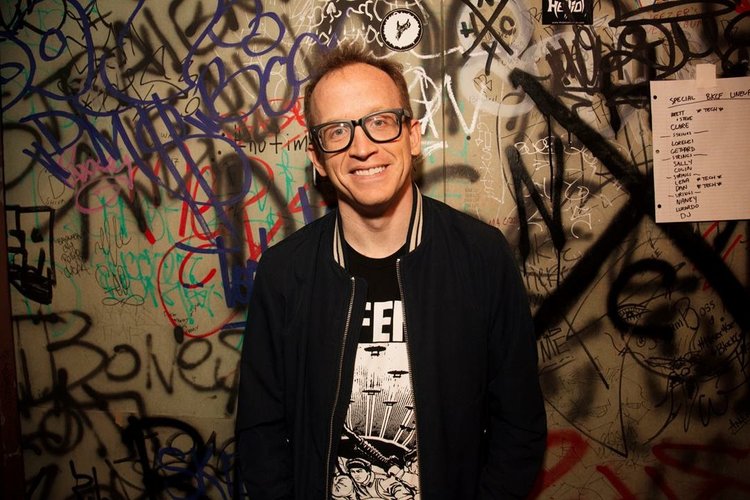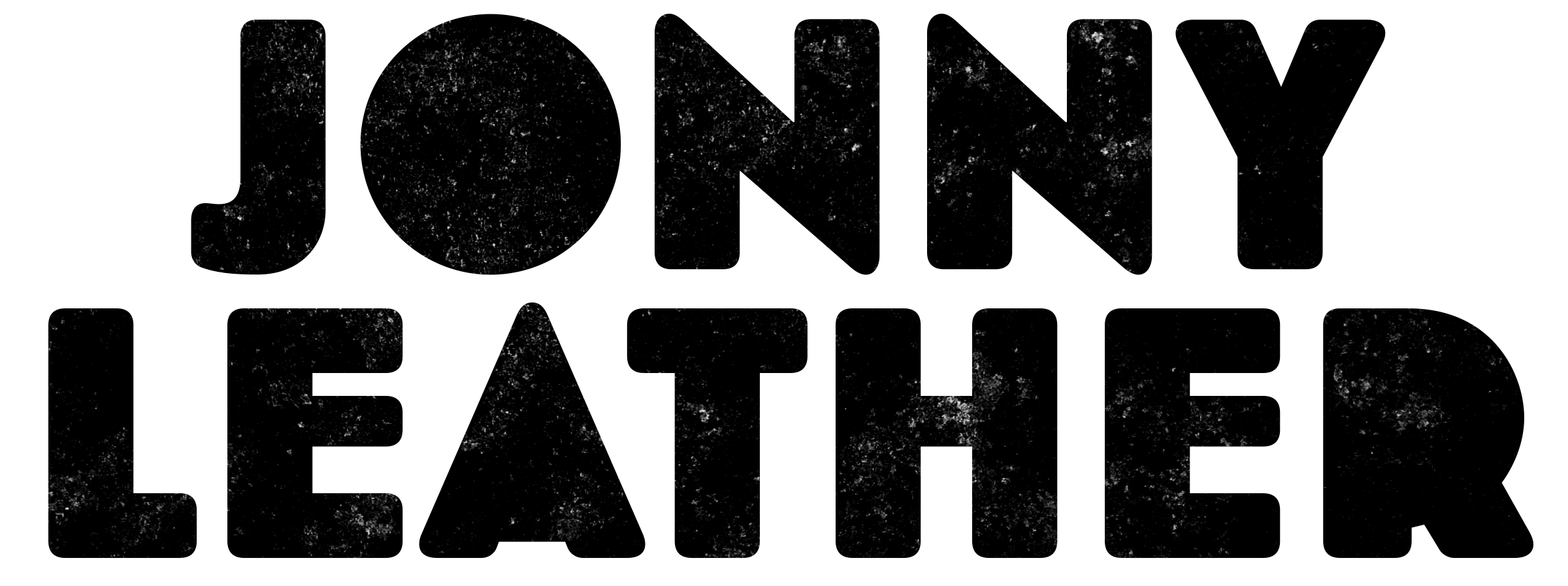
Chris Gethard
The telephone is a great source of anxiety for me and always has been. So when I was recently provided the opportunity to interview beloved comedian Chris Gethard over the phone, I jumped at the chance to overcome my telephobia. If anyone could provide wisdom in regards to this issue, it’d be the notoriously anxious Gethard.
Beyond his notable career as a comedian and actor (The Office; Broad City), Gethard is a self-proclaimed “Telephone Call Enthusiast” who hosts a weekly podcast, Beautiful/Anonymous, during which he takes a call from a random anonymous stranger. The conversations last an hour, with Gethard following a rule that he cannot be the first to hang up. An empathetic listener whose comedy is best characterized as vulnerable, he usually manages to manifest humorous, thought-provoking dialogues from completely unpredictable circumstances.
So, as much as I’ve always admired Gethard’s genuine, DIY brand of stand-up comedy, I was just as fascinated by his ability to overcome his own anxieties while taking a phone call in front of a live audience — something he’ll be doing on Saturday, May 14, at The Grey Eagle, in addition to a stand-up set later that night.
Sweetening the deal, he accidentally called two hours early, apologizing profusely, not realizing that he had just carved two hours of anxiety off my Monday.
Jonny Leather: Although we’ve never met, we actually crossed paths in Brooklyn back in 2013 when you performed The Chris Gethard Show in my neighbor’s backyard as part of Hillstock Festival.
Chris Gethard: That was a great show. I proposed to my wife later that night. I bought the ring before that show, and showed it to [former TCGS co-host] Shannon [Patricia O’Neill] there. I had every intention of just putting that ring away and forgetting about it until [singer/songwriter/bassist] Hallie [Bulleit] and I moved in with each other. But then it was in my hand and I was like, “Screw this. I need to get this thing out of my possession immediately.” So I just proposed that night. So yeah, I had the ring in my pocket at that show. Nine years later, you can finally tell the world that I had an engagement ring in my pocket during the Hillstock Festival of 2013.
JL: You just got back from some dates in Florida?
CG: I did. I did three shows in Florida. I have been back in Jersey for a few days. It’s nice to be out on the road touring again. It feels like a return to being able to do what I do — some normalcy in a sense, so I feel lucky. The shows were all really good.
JL: Have you been to Asheville before?
CG: I have not. This is the very very first. People keep telling me that it’s this arts haven. I can’t wait to see it. I’ve done Durham. I’ve done Wilmington. That might be it. People have been telling me for years, ”You’re missing out. Asheville is your people, man.” So I’m hoping this all holds true.
JL: Being a comedian is so dependent on getting out in front of others and refining your material. Has it been hard to get back into the groove after not being able to perform in front of crowds for a couple of years?
CG: Yeah. I’ve been getting up on stages in front of crowds for 22 years. So when it, you know, went away — initially it was so jarring. It definitely felt like muscles were atrophied. It absolutely feels like this thing that I’ve done for my whole adult life just went away. And that’s sad and scary, but, you know, there are people with much bigger problems than that. I’ve always been someone who’s really well aware of how lucky I am. Even more so, I’ve never taken it for granted that people will come out to see me, and these days that’s even more pronounced.
JL: I can imagine that it feels like a part of you was stripped away.
CG: Yeah. The silver lining for me — my son was born in April 2019. So I try to take a deep breath and go, “I got to be home with him so much more than I would have been.” And I got to eat dinner with my wife and my kid so many nights where usually I’d be out doing shows or be out on the road. I try to see the silver linings in it but I’m happy that it seems like, at least for this summer, I’ll be able to do what I do and link up with people. I’ve been really grateful that since I’ve been back, every time I do a show, people also seem to be happy to be out there. That feels good — that link between performer and audience just feels really good.
JL: I imagine that being on the stage has been really cathartic.CG: Yeah, it’s cathartic. It’s very empowering. It’s also very jarring. I don’t think performing is like riding a bike, necessarily. It takes a lot. I’m also someone who’s very well aware that sometimes people spend money and take time to see me, so it’s also like, “Oh, I gotta remember how to do this.” I don’t ever want someone to come to a show of mine saying they got a subpar experience. I don’t want them to ever feel like I dropped the ball. It’s a tough act to just take six months off and then be able to still give people an experience worth their money.
JL: So, I’ve always struggled with phone anxiety and social anxiety in general. Listening to your podcast, I have been fascinated with how freely you’re able to talk with strangers for an hour. Have you always been comfortable doing that?CG: I’m kind of notorious for dealing with anxiety day-to-day. And if you had asked my wife if I’m comfortable around people, she would start laughing in your face. I think at the end of the day, I started going into New York City to perform comedy when I was 19. I was a really shy, anxious kid — it would be years before I would see a shrink, get medicated, and start working on myself.
I look back and realize that getting on stage was kind of the only place where I felt emboldened or like I had a voice at all. So I was very addicted to getting on stage. I think that’s where I actually felt comfortable. So as far as performing, putting myself out there with that, I think it’s kind of got roots in a bit of a sad answer — which is that I’ve never been really comfortable in real life, so I was going on stage.
But you can ask a lot of people — like, people who are fans of the podcast: it always makes me laugh because they will approach me in real life and I will often putz. Actually, I’ll often get shy or I’ll be weird. And they’ll say, “Oh, you’re not BS’ing us man. That’s real.” I’m so much better on the phone in the context of a creative project than real life. So yeah, it was always just kind of backwards like that. But I might go on stage in front of 200 people and give them a show where I’m totally in charge of the room, and then if I’m on line at the pharmacy down the block the next day and they try to say, “Hi, good show,” they’ll get a cringy, uncomfortable interaction. I guarantee it.
JL: You’re able to pull out these peculiarities of people, and you’re such a good listener. That’s something that is so hard to do on the phone for most people.
CG: I started as an improviser many years ago, and so much training that I got as an improviser was that you want to really be tuned-in and listening to “the unusual thing” and focus on it. So, that’s what your scenes on stage are about. With Beautiful/Anonymous, it’s very surreal for me because a lot of what I’m doing is just sort of like I’m doing improv scenes with people who don’t realize that that’s what they’re in the middle of.
JL: And they’re not there to “yes, and…” with you.
CG: Exactly. Whereas I’m sitting here going, “What’s the most unusual thing? How can I jump on that? How can I make that what this is mostly about? How can I lead it in that direction?”

[Gethard’s young son interrupts.]
CG: I don’t know if you caught that. Apparently me and my son are lightning tigers. Yeah, so real badass stuff going on in Gethard house.
[Some more mostly-inaudible details emerge from Gethard’s son regarding lightning tigers before Gethard picks up where he left off after briefly losing his train of thought during the momentary glimpse into his delightful father-son dynamic.]
Okay, sorry about that. I forget what I was saying, but it was supposed to be very profound…
[We struggle for a second to recall anything beyond lightning tigers before Gethard quickly remembers.]
I feel like when I figured out the show, there was a guy who called me and started talking about how he’d been going through the process of trying to get a passport on short notice. It was good, and it was interesting enough. And then at some point, he started to indicate some things — like that he was raised in a very orthodox version of the Jewish faith, but he left that behind, and I just kind of guided it more and more towards that. Passports are somewhat interesting, but leaving behind your religion? That’s very interesting. I think that’s when I realized that a lot of the improv skills apply to this show, too. As far as jumping on the unusual thing and trying to give that the most amplification, that’d be the episode where I was like, “Oh, the phone call show is really just an improv show.”
JL: You’ll be following a live podcast taping with a stand-up show. Is it difficult to perform stand up after an emotional roller coaster conversation?
CG: Very often it is. I’ve already been out there for an hour-and-change, working. It can be a little exhausting. And then I get up there and have to do it and turn on a whole other side of my brain. It can be really hard because it’s also a totally different part of my brain. Especially with Beautiful/Anonymous, I never know when there’s going to be one where someone tells me what it’s like to basically cosplay as a pirate on the weekends, or is this one where you’re going to tell me about something so severe and dark from your childhood that you’ve only told two other people in your life? I have no idea.
The live shows are such a challenge. It’s so fun because part of it is that I gotta make sure that the caller is taken care of, and also to make sure the live crowd is entertained. Sometimes those things go hand in hand. Sometimes it’s two balls in the air at once. So I never quite know what I’m getting into. Sometimes I gotta go back in the green room and put the game face back on and remember how stand-up works, where it’s a whole other part of my brain that is fired up.
JL: In the last few years, the world has seen on the internet just how serious and unpleasant anonymity can be, but you have this way of drawing out the human side of anonymous callers.
CG: I’m really psyched to hear you say that. You don’t need to be a social scientist to say “Wow! Social media seems to be having some scary effects on society.” I’m of the exact age where I was looking into the BBS dial up sites, and then I remember when it was America Online and CompuServe and Prodigy. And then I remember when the internet exploded, so I was very well aware of all these things as they developed.
There was a stretch of life where it seemed like now we have the internet, this thing that connects us all. What a beautiful and exciting and addictive thing that was! And now, in many ways, it is that — you see a lot of social movements that gained strength and momentum via social media, via hashtags. Those are beautiful things. I was just reading an article about how these murders that the police have given up on and that Tiktok-ers managed to get attention on them and they get solves. Those are all incredible things. And those are easy to forget.
It’s really, really hard, but I do feel lucky that I think I was around for a stretch of the internet when that anonymity actually felt like its potential and this idea that could connect you with anyone anywhere. I was this kid who sat around feeling weird and feeling like an oddball, and I was able to go online and find the other people that felt that. It was like, “Oh, we don’t need a physical location to build a community anymore.” It’s amazing. I think I still hang on to those in a big way.
I think the anonymity of the phone call lets people feel like they should open up because they’re not going to get judged. But I also think there’s something to be said for that — I feel really comfortable being the caretaker of that relationship and making it feel the same way that I used to feel when I was like, “I can go on the internet and find the other nerds who love pro wrestling, comic books, and Andy Kaufman,” and all the other stuff that I liked as a kid that no one else did. I remember that feeling of safety that came with that, and I think I’m able to pass that forward now.
[As we exchange goodbyes, Gethard adds one last thing.]
CG: Please feel free to tell everyone that me and my son are lightning tigers. You’ll also be happy to hear this: just as the interview ended, he ran into the room and threw an avocado at me.
[Laughter ensues]
CG: And I hope all you listeners out there, if you yourself feel like a lightning tiger, understand that I get it. You have a safe place at my show.
In case you’re wondering, I hung up first.
(Photos by Mindy Tucker)



